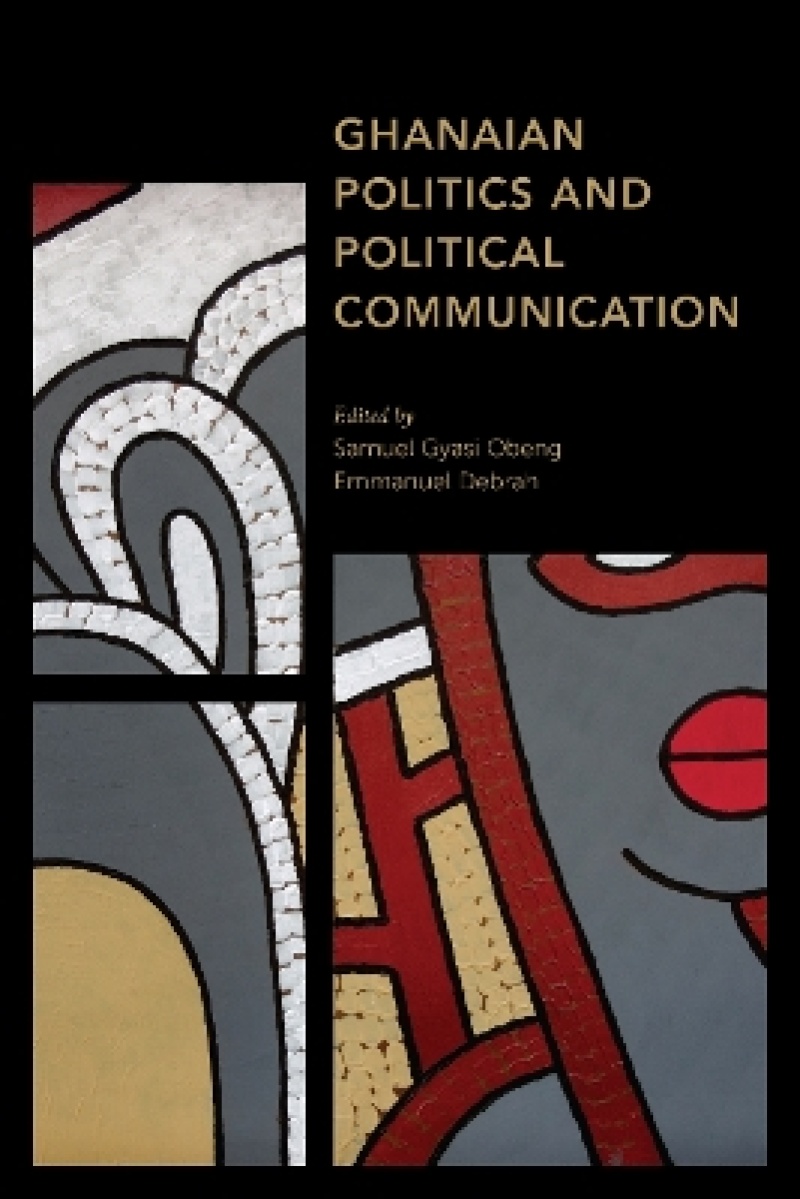Prologue
Preface and Acknowledgments
Dedication
Chapter 1. Introduction
Samuel Gyasi Obeng and Emmanuel Debrah
PART ONE: GHANAIAN POLITICS
Chapter 2. Ghana’s Political Environment and the 2016 General Election
Emmanuel Debrah, University of Ghana
Chapter 3. Election Campaign in Ghana’s 2016 National Elections
Seidu Alidu, University of Ghana
Chapter 4. Communicating with the Electorate in the 2016 Elections: Did the Political Parties and their Candidates Lean on the Issues?
Richard Asante, University of Ghana
Chapter 5.(Mis)Coordination: Why Would Ghanaian Political Actors and Political Parties Encourage Split-Ticket Voting?
Samuel Darkwa, University of West Virginia
Chapter 6. Are Members of Parliament in Ghana Responsive to their Constituents in Policy Making? Evidence from the National Health Insurance Scheme
Hassan Wahab, University of Ghana
PART TWO: GHANAIAN POLITICAL COMMUNICATION
Chapter 7. When Government Is Unaware It Is Incommunicado
Margaret I. Amoakohene and Kwasi Ansu-Kyeremeh, University of Ghana
Chapter 8. Pragmatic Analysis of First Person Pronoun Deixes in President Nana Akuffo Addo’s 2018 State of the Nation’s Address (SONA)
Kofi Agyekum, University of Ghana
Chapter 9. Discursive Construction of the Representative Claim in UK and Ghanaian Parliamentary Discourse
Kwabena Sarfo Sarfo-Kantankah, University of Cape Coast
Chapter 10. How Much Communication is in Ghanaian Presidents’ State of the Nation Addresses?
Margaret I. Amoakohene, University of Ghana
Chapter 11. Power, Domination and Manipulation in Students’ Parliamentary Discourse in Ghanaian University
Dora F. Edu-Buandoh and Nancy Boahemaa Nkansah, University of Cape Coast
Chapter 12. The Role of Music in Ghanaian Political Communication
Kofi Agyekum, Joshua Alfred Amuah and Hilarius Mawutor Wuaku, University of Ghana
Chapter 13. President Akufo-Addo’s Address to the Nation on the US-Ghana Military Co-operation Agreement: A Political Communicative Functional and Framing Analytic Approach
Etse Sikanku, Frank Kofi Boadi, Halisa Aziz and Nana Kwame Osei Fordjour, University of Ghana
Chapter 14. Language and Liberty in the Ghanaian Political Ecology: A Brief Overview
Samuel Obeng, Indiana University
Epilogue
Author Information
Les mer
